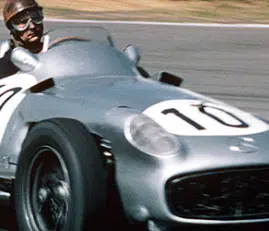Bob Wollek looked happy after recording 3 min 17.11 sec (154 mph) for pole position. It was half a second slower than Ickx’s pole time last year, but the Alsace driver had been baulked three times by slower cars and knew that the Lancia was capable of a 3 min 14 sec in perfect conditions. He and Alessandro Nannini would not be able to run at that speed in the race with lower boost from the turbochargers and harder tyres, but undoubtedly they had the fastest car and, therefore, had more in hand. Paolo BariIla, Mauro Baldi and Hans Heyer shared the second Lancia which recorded 3 min 20.47 sec — and then the private Porsche teams jostled for the next rows on the grid. Stefan Johansson, partnering Jean-Louis Schlesser and Mauricio de Narvaez in one of Reinhold Joest’s three New Man sponsored Porsche 956s, was third fastest overall with a time of 3 min 26.10 sec. Perhaps, though, Joest would pin his hopes on the second car, that of previous winners Henri Pescarolo and Klaus Ludwig, in which Ludwig recorded 3 in 28.42s.
Erwin Kremer is perhaps the most experienced Porsche privateer, having prepared the winning car (for Ludwig) in 1979, and the 956 which went so well for the Andrettis last year. This time he pinned his hopes on a brand-new car for Alan Jones, last year’s winner Vern Schuppan, and Jean-Pierre Jarier. Then there was the Canon team which did so well at Silverstone, Jan Lammers partnering Dr. Jonathan Palmer who even missed the Canadian Grand Prix to be at Le Mans. All these, and John Fitzpatrick’s Skoal-sponsored 956 for David Hobbs, Philippe Streiff and Sarel van der Merwe practised at below 3 min 30 sec, the standard (if not the actual speed) that would be needed to run at or near the front during the race. In the low 30’s, too, were Fitzpatrick’s second entry, a new 962 — though with a 956 engine — for Guy Edwards / Rupert Keegan / Roberto Moreno, Kremer’s Dallas sponsored second entry for David Sutherland / Tiff Necdell / “Rusty” French, two French WM-Peugeots which are always so quick along the Mulsanne Straight, the Gaggia sponsored 956 of Oscar Larrauri / Massimo Sigala Joel Gouhier, the “Team Australia” 956 of Larry Perkins / Peter Brock, and Walter Brun’s 956 shared with Prince Leopold von Bayern and Bob Akin.
British hopes, and certainly those of the enormous contingent of trippers across the Channel, rested fair and square on the Jaguars and Aston Martins. Never mind that Aston Martin has been kept alive by American finance, or that the Jaguars are American prepared and built . . . they are unquestionably British at Le Mans. Viscount Downe’s Nimrod team wanted so badly to beat the Jaguars that they even resorted to fitting qualifying tyres on Ray Mallock’s 580 bhp, normally aspirated car for the first time, rewarded by the 10th fastest time overall at a stirring 3 min 33.14 sec (2½ sec faster than the Northampton driver went last year in the same car). No doubt, then, that the Nimrod was the fastest non-turbo and, with its better fuel consumption, perhaps a dark horse for the race.





